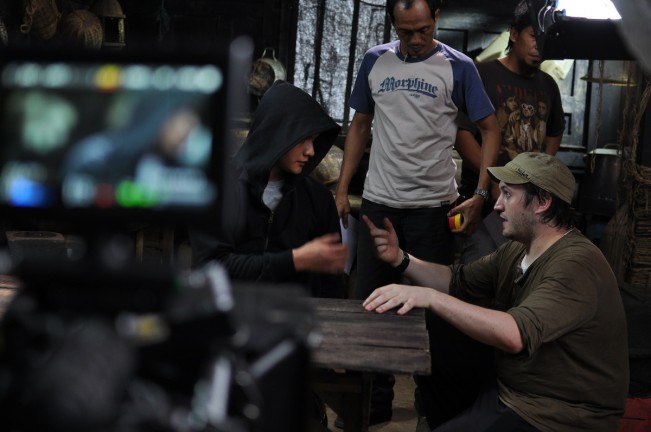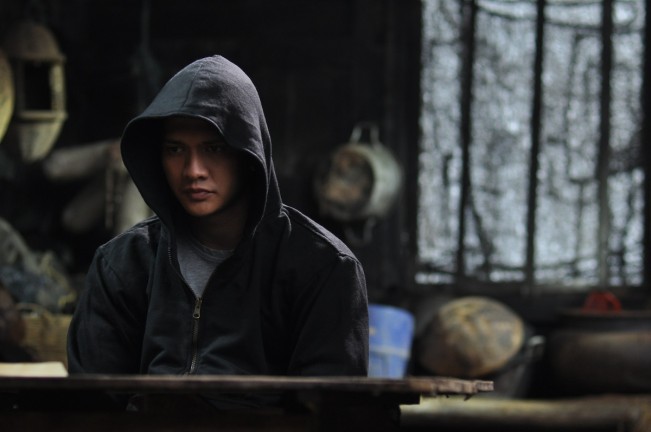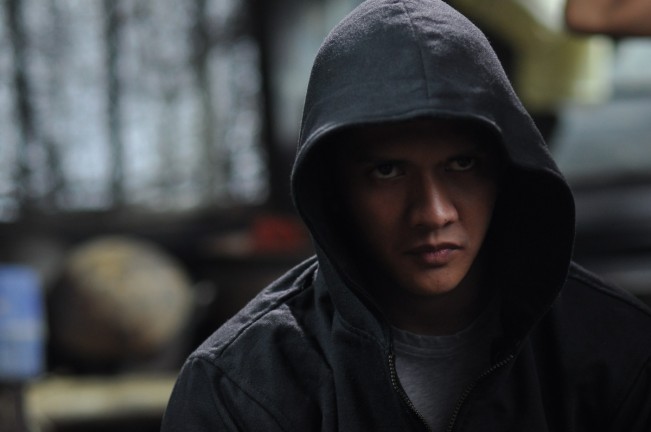

By Ray Pride Pride@moviecitynews.com
Picturing THE RAID 2 In Production
 These stills come from a single, non-action scene of The Raid 2, but Gareth Evans is generous with small bits of information at his Twitter account. “Amazing steadicam work earlier. Huge shot. Got it and wrapped. Tonight reunites me with Prakoso in something of a tender scene for him.” “19 scenes out of 103 done so far. Close to a fifth of the way through in terms of content, but only 15% of the way through the schedule.”
These stills come from a single, non-action scene of The Raid 2, but Gareth Evans is generous with small bits of information at his Twitter account. “Amazing steadicam work earlier. Huge shot. Got it and wrapped. Tonight reunites me with Prakoso in something of a tender scene for him.” “19 scenes out of 103 done so far. Close to a fifth of the way through in terms of content, but only 15% of the way through the schedule.”
Los Angeles, CA (January 31, 2013) – PT Merantau Films and XYZ Films announce the start of production for THE RAID 2 (Indonesian title, THE RAID 2: BERANDAL), the sequel to the wildly popular international hit THE RAID (aka THE RAID: REDEMPTION). The film reunites writer/director Gareth Huw Evans with actor Iko Uwais, who will be reprising his starring role. Ario Sagantoro is producing for PT Merantau Films, along with Nate Bolotin, Nick Spicer, Aram Tertzakian and Todd Brown for XYZ Films. Executive producing are Rangga Maya Barack-Evans and Irwan D. Mussry.
In addition to Uwais, the international cast includes Tio Pakusadewo, Putra Arifin Scheunamann, Julie Estelle, Alex Abbad and Roy Marten. The film is currently lensing in Jakarta, Indonesia and is scheduled to shoot for over 100 days. Line producing the film is Daiwanne Ralie, with Matthew Flannery and Dimas Imam Subhono serving as directors of photography.
Picking up right where the first film ends, The Raid 2 follows Rama (Uwais) as he goes undercover and infiltrates the ranks of a ruthless Jakarta crime syndicate in order to protect his family and uncover the corruption in his own police force. ”
















